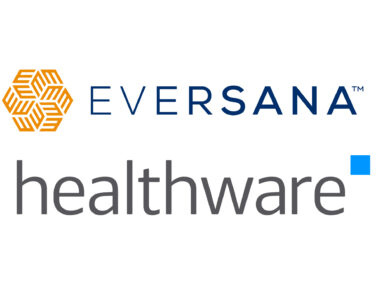ADVICE NETWORKS ACQUIRES PATIENTPOINT
Healthy Advice Networks announced the acquisition of PatientPoint, a provider of care coordination, patient engagement, and revenue cycle management solutions. Terms of the acquisition were not disclosed. Healthy Advice Networks provides health information programs that strengthen patient-physician engagement in waiting rooms, exam rooms, and practice management areas, as well as in hospital settings.
NEW SURVEY: WALGREENS’ CUSTOMERS FLOCK TO INDEPENDENT PHARMACIES
According to a national survey of independent pharmacists, conducted by Pharmaceutical Care Management Association (PCMA), Walgreens’ exit from key pharmacy networks is benefiting local drugstores and consumers who changed pharmacies. Independent pharmacists say former Walgreens’ consumers are more satisfied, switched pharmacies with ease, and still have many choices despite the absence of almost 8,000 Walgreens stores in their networks. PCMA represents the nation’s pharmacy benefit managers (PBMs), which improve affordability and quality of care through the use of electronic prescribing (e-prescribing), generic alternatives, mail-service pharmacies, and other innovative tools for 216 million Americans.
COMPUTER ALGORITHM REVEALS DRUG SIDE EFFECTS AND INTERACTIONS
Researchers at the Stanford University School of Medicine have devised a computer algorithm that enabled them to swiftly sift through millions of reports of the U.S. Food and Drug Administration and identify “true” drug side effects. So far, the algorithm has helped to discover side effects across the board but also to find drugs that, while different, have similar effects on patients. “It can help a physician better and more safely tailor drug prescriptions to patients. It can also drive drug development and discovery by identifying shared biological pathways and targets among drugs with similar side effects,” said Russ Altman, MD, PhD, a professor of bioengineering, genetics, and medicine at Stanford.
ALZHEIMER’S AND DEMENTIA COST NATION $200 BILLION
According to 2012 Alzheimer’s Disease Facts and Figures, released by the Alzheimer’s Association, caring for people with Alzheimer’s and other dementias will cost the United States an estimated $200 billion in 2012. This includes $140 billion paid by Medicare and Medicaid. “While lives affected and care costs soar, the cost of doing nothing is far greater than acting now. Alzheimer’s is a tremendous cost driver for families and for Medicare and Medicaid. This crisis simply cannot be allowed to reach its maximum scale because it will overwhelm an already overburdened system,” said Harry Johns, CEO of the Alzheimer’s Association.
OUTBREAKS LINKED TO RESISTANT PATHOGENS
In three major outbreaks of antibiotic-resistant, food-borne illness in 2011, 167 Americans became sick, 47 were hospitalized, and one died, according to a white paper released by the Center for Science in the Public Interest (CSPI). “We must not continue to jeopardize the effectiveness of these drugs by using them recklessly for non-therapeutic uses on farms and in animal factories. Otherwise, consumers may face longer illnesses, more hospitalizations, and more fatalities when exposed to resistant strains of common food-borne pathogens,” said CSPI food safety director Caroline Smith DeWaal.
IMPACT OF TOBACCO CONTROL EFFORTS
Twentieth-century tobacco control programs and policies were responsible for preventing more than 795,000 lung cancer deaths in the United States from 1975 through 2000, according to an analysis funded by the National Cancer Institute (NCI), part of the National Institutes of Health. If all cigarette smoking in the country had ceased following the release of the first Surgeon General’s report on smoking and health in 1964, a total of 2.5 million people would have been spared from death due to lung cancer in the 36 years following that report, according to the analysis. The results of this study were published online March 14, 2012, in the Journal of the National Cancer Institute.
NIH, LILLY TEAM ON DRUG DATABASE
The National Institutes of Health and Eli Lilly and Company will generate a publicly available resource to profile the effects of thousands of approved and investigational medicines in a variety of sophisticated disease-relevant testing systems. Through the collaboration, the NIH’s newly established National Center for Advancing Translational Sciences (NCATS) and Lilly Research Laboratories have agreed that NCATS’ Pharmaceutical Collection of 3,800 approved and investigational medicines will be screened using Lilly’s state-of-theart Phenotypic Drug Discovery (PD2) panel.
OPENQ COLLABORATES WITH SALESFORCE.COM
OpenQ announced OpenQ for Salesforce is now available on Force.com, Salesforce.com’s social enterprise cloud platform for building employee-facing social apps. The new app brings together OpenQ’s expertise and solutions for harnessing the power of medical networks with the reliability, power, and reach of the Force.com platform. OpenQ for Salesforce enables life sciences companies to effectively engage with key opinion leaders and stakeholders in a compliant way. —Johnathan Lugo





